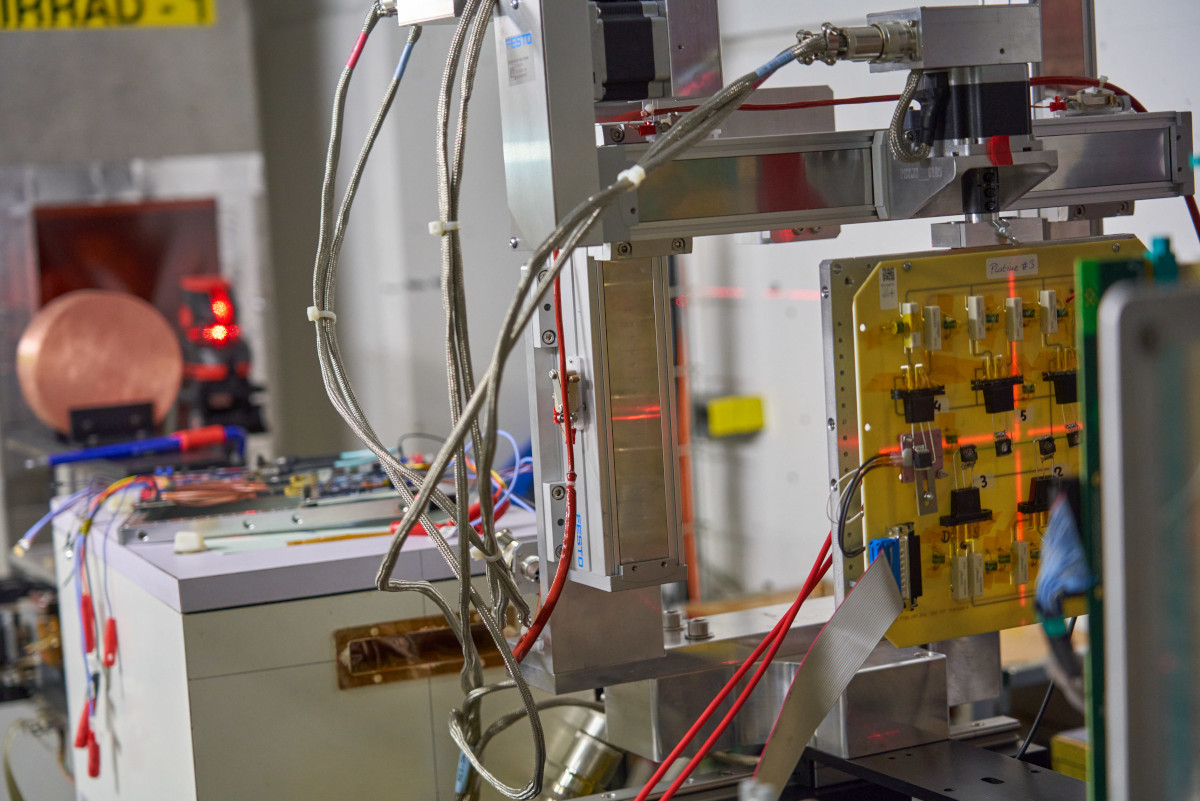The HEARTS project branch at CERN is looking for a motivated physicist/engineer to take part in the development of a space radiation effects laboratory using heavy ion beams for irradiating electronic components before they are used on board spacecraft.
Take part and your cutting-edge research will help to shape the future of the rapidly growing spaceflight sector in Europe and the world!
Context and Objectives:
Radiation effects induced by heavy ions within electronics require an in-depth understanding on a fundamental physical level, generally achieved through the combination of experiments and simulations. The PhD student’s activities within this multidisciplinary research project will involve:
- Identification of radiation effects within modern electronic architectures through simulation and experimental validation.
- R&D in test facility development and dosimetry techniques, participation in test campaigns at CERN and potentially in other accelerator facilities.
- Exploration of novel radiation effects testing methods (Spread-out Bragg peak, fully fragmented, GCR-like testing).
Details:
- Workstation: CERN near Geneva (Switzerland). You will be part of the Radiation to Electronics (R2E) team within the SY-STI-BMI Beam Machine Interactions section, in charge of the development of the FLUKA Monte Carlo simulation code.
- Program: When selected, you will apply to the CERN Doctoral student programme.
- Home University: to be determined, in agreement with the selected candidate.
- Start date: Latest 1st of September 2025.
Ideal candidate profile:
- Master’s degree in physics, aeronautical or electronic engineering or a related field.
- Knowledge of semiconductor physics and circuits; application of instrumentation and measurement techniques; analytic and critical mind with strong data processing and programming skills. Any experience with Monte Carlo simulations is considered a plus.
- Communicative and collaborative spirit with problem-solving competencies, ability to work in teams but also driven to achieve results independently, capable of presenting and sharing results.
- Written and spoken proficiency in English.
Application is CLOSED.
See also
- Applications for commercial beam time at HEARTS@CERN in November-December 2025 is now open!
- EU project to boost Europe’s space radiation testing capabilities marks significant milestone
- CERN Heavy Ion Run
- How to make CERN and GSI dosimetry comparable?
- HEARTS innovates to foster European access to space

